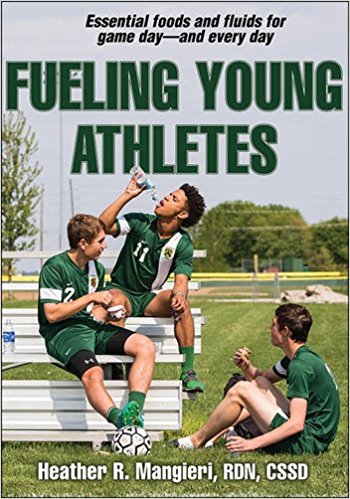The Science of Endurance and What Really Works From Heather Mangieri
Fact or Fiction: What are the right level of carbs and why? Do drinks, chews or recovery drinks make a difference at a high-level competition?
Nutrition expert Heather Mangieri, MS, RDN, CSSD, LDN — Author of FUELING YOUNG ATHLETES and CEO/Nutrition Consultant at Nutrition Check Up shares her valuable insights on recovery and endurance.
Carbohydrate intake varies from athlete to athlete depending on quite a few factors.
Age, sport, duration, level of training and timing all play a role in determining the right level of carbohydrates. Even if the athlete is competing at a high-level of competition, timing matters, so understanding the purpose of carbohydrates helps.
Carbohydrates fuel the brain and muscles.
The more sedentary the individual, the fewer carbohydrates are needed. It doesn’t take much food to fuel a night on the couch. Young athletes, however, need fuel to perform – that fuel comes in the form of carbohydrates and fat.
Eating the right balance of these two nutrients spares protein from being broken down for energy. That’s a win-win if you want to maintain muscle mass and perform to win. Related Article: Soccer Lovers Book Review: Fueling Youth Athletes
Related Article: Soccer Lovers Book Review: Fueling Youth Athletes
As a sports dietitian, I calculate the carbohydrate needs of a young athlete with a few things in mind. First, how much is needed for growth and development. Since young athletes are still growing, these needs are greater out of the gate than an older athlete.
After that, we add the extra energy needed to support their body composition, their goals, and their sports performance. I walk athletes through how to calculate their individual needs in my book, Fueling Young Athletes.
Water vs Sports Drink: Which do Athletes Need?
As athletes perspire, they lose electrolytes, especially sodium and chloride, the two minerals found in the greatest concertation in sweat. along with water, these electrolytes need to be replaced to prevent fluid imbalance.

Therefore, drinking a sports beverage or using other carbohydrate-based products come in quite handy. It is not a necessity to drink sports drinks or other engineered products – they just make it easier for high-level athletes to get the nutrition that they need.
Engineered sports nutrition products, such as sports drinks, chews, gels, etc., are specifically designed to support the needs of athletes around activity. It’s not practical to consume a sandwich during a long-distance endurance event, especially for athletes performing at high-intensity.
Related Article: Soccer Players: Fueling for the Last 20 Minutes
The Electrolyte Question
Gatorade is often provided at high-level youth soccer tournaments — the question is, do products like Gatorade’s really help or hurt? Should players take advantage of these freebies? What do they replace in their diet? Are they gold for recovery or clever marketing gaining revenue at the expense of overly eager parents wanting to help?
The Electrolyte Answer
Engineered sports products are in no way meant to replace a nutrient in the diet; they are simply a supplement to help athletes that need more carbohydrates and electrolytes, get more.
For athletes participating in long-distance endurance events like youth soccer tournaments, sports drinks provide fuel and electrolytes that are being lost and utilized during activity. They’re also a quick and convenient fuel and fluid source after activity, to replace the losses resulting from sweat and fuel use.
Sports drinks are also a quick and convenient fuel and fluid source after activity, to replace the losses resulting from sweat and fuel use.
As I cover in my book, Fueling Young Athletes, research has shown that when players are given only water to drink, they do not replace their fluid losses as completely as when they are offered sports drinks.
Some athletes also sweat more than others and may require more sodium to replace their losses. Very few athletes know their sweat rates — and, it is important to realistically drink enough to maintain a proper hydration balance.

An Important Tip: Create a hydration schedule.
Even with the best intentions, staying hydrated during a youth soccer tournament can be a challenge. Setting up a hydration schedule can help young athletes get in the habit of drinking fluids throughout the day.
And, remember, to always drink 2 hours before exercise and then again 30 minutes before you start.






